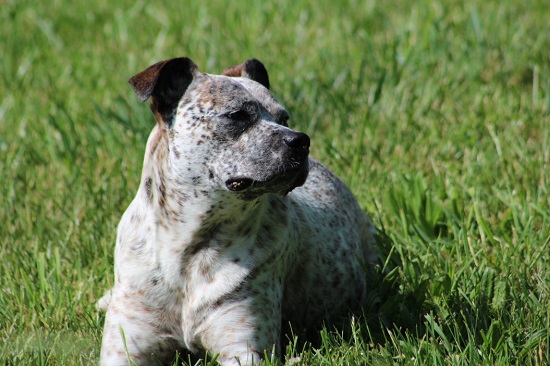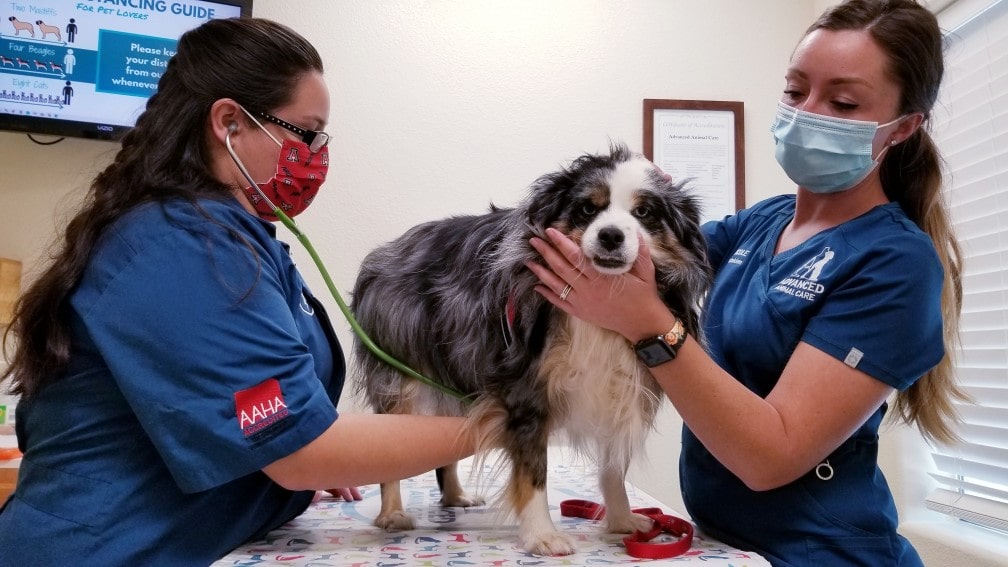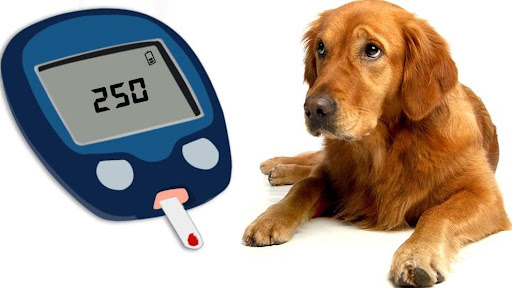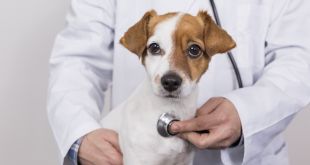Strokes in dogs are somewhat rare and can be difficult to spot. Our pups are quite stoic, and without the gift of speech to tell us how they are feeling, diagnosis is challenging.
A stroke occurs when there is a disruption to the blood flow to the brain. If you suspect your pet is having a stroke, get them to the vet immediately.
Below we will discuss the types of stroke, how to identify the signs in your dog, and what you can do to help them beat the odds.
What Is A Stroke?
According to the American Stroke Association, a stroke occurs when a blood vessel that brings nutrients and oxygen to the brain gets ruptured or blocked. Cell death can occur when oxygenated blood cannot reach the affected area of the brain. Moreover, strokes often happen unexpectedly and without warning.
There Are 2 Types Of Stroke In Dogs:
Ischemic Strokes
These strokes occur when tumor cells, blood clots, clumps of platelets, bacteria, or parasites block the blood vessels of the brain. This block leads to harm to the brain tissue. Ischemic strokes are more common than hemorrhagic strokes in both humans and dogs.
Hemorrhagic Strokes
In a hemorrhagic stroke, blood vessels rupture, causing bleeding in the brain, swelling, and increased pressure.
Dogs often recover from a stroke far faster than most people, so you don’t need to worry if your dog actually has a stroke.
7 Signs That May Mean Your Dog Had a Stroke
The following signs could be indicators that your dog has had a stroke. However, remember that you’ll need a proper diagnosis from your vet to determine precisely what’s wrong with your pet.
- Sluggishness – Your dog may unexpectedly seem too tired to respond to you or unable to move. It may also experience weakness or paralysis in one or more limbs.
- Pacing or Circling – Depending on which side of the brain is involved, the dog may circle to one side or turn in the wrong direction when called.
- Lack of bowel management – Similar to a loss of bladder control, a dog may not even be aware that he is releasing his bowels due to a lack of muscle control brought on by brain damage from the stroke.
- Unable to maintain balance – The dog may list to one side or another, or he may be weak and shaky and even fall over when trying to walk.
- Lack of bladder control – A dog may discharge urine involuntarily during the stroke and remain unable to control his bladder after the event.
- Head tilt – The dog appears to be cocked as though listening with one ear. However, the animal suffers from a failure of equilibrium, so the head tilt is usually linked with circling and losing balance.
- Paralysis – Dogs usually experience some measure of paralysis with a stroke. The dog may lose the use of one or more legs, keeping it from being able to walk. There may also be some facial paralysis that drives the drooping of an eye or the jaw, but this sign is far more familiar in people than in dogs.
- Impaired vision – This can be anything from eye problems such as blurry vision to complete blindness.
Diagnosing Stroke in a Dog
If you guess your dog has had a stroke, you first need to take him to the vet for an examination. Your vet will first give your dog a physical exam and make a list of any external signs. If the symptoms point toward a possible stroke, your vet will then move on to a neurological exam.
This can include an MRI or a CT scan to look at what’s happening inside your dog’s brain. For example, the vet looks for signs of a blocked artery or internal bleeding.
Conditions Similar to Stroke in Dogs
Some physical conditions with signs can seem similar to a stroke in dogs. Some of these to be aware of are:
- Fainting spells, also known as syncope
- “Old dog vestibular disease” involves an inflammation of the vestibular nerve
- Kidney failure
- Seizures
- Inner ear infections
- Brain tumors
While the signs and symptoms of these conditions can mirror a stroke, imaging tests are the only way to know which is affecting your dog. Therefore, your veterinarian will perform CT scans, electrocardiograms, MRIs, x-rays, and ultrasounds, among other tests, to make a correct diagnosis.
How Serious Are Dog Strokes?
The severity of a stroke depends on the part of the brain affected and how long the brain goes without blood flow. Catastrophic strokes can significantly decrease the quality of life or even be fatal.
On the other hand, not all strokes are life-altering, and several dogs live long, happy lives. Recovery and long-term prediction depend on:
- Underlying medical situations
- Type and severity of stroke
- How fast your dog receives treatment
- Supportive care
Stroke Recovery for Dogs
It is very little the vet can do to treat a dog’s stroke once the damage is done. Therefore, vets look for the initial cause of the stroke and treat that cause to prevent future strokes.
According to the American Animal Hospital Association, most dogs who have suffered from a stroke “have a good outcome,” The quicker you get your dog to a vet, the more likely they will have a positive result.
The prognosis for your dog will depend on various factors like age, overall health, underlying medical needs, and the intensity of the stroke incident.
Most dogs that make it through the few days of treatment are likely to have a close-to-full recovery, although they may have some physical deficiencies that can be addressed through physical therapy and supportive care.
However, you may also notice some neurological and behavioral changes that could be permanent but do not necessarily affect your dog’s quality of life.

 DogExpress
DogExpress




















 in Chandigarh, India.
in Chandigarh, India. 
